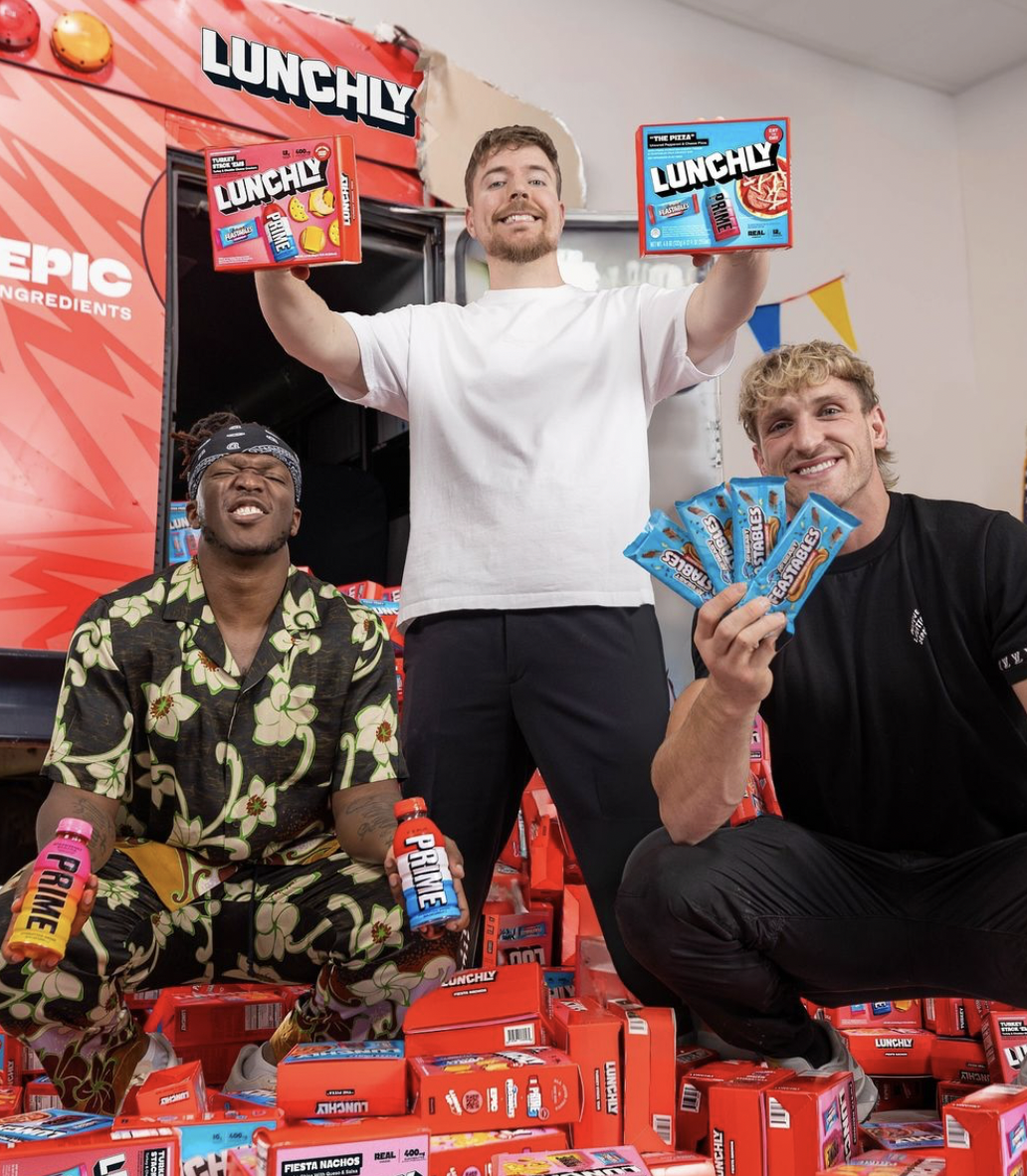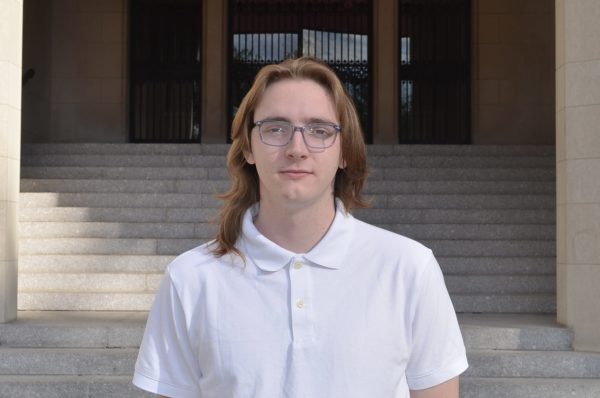James Donaldson (known as MrBeast), Logan Paul and Olajide Olatunji (KSI) have internet fame in common. Donaldson has captivated the internet through fast-paced videos often featuring incredulous challenges and even more unbelievable sums of money, such as “I Bought Everything In A Store – Challenge,” “Ages 1 to 100 Fight For $500,000” and “$465,000 Squid Game In Real Life.” His YouTube channel, MrBeast, has 322 million subscribers, the most of any channel on YouTube and nearly equivalent to the population of the United States. Paul originally gained a following making short-form video content on Vine before transitioning to making videos on YouTube. He signed as a WWE wrestler, hosts the “Impaulsive” podcast on YouTube with 4 million subscribers and has co-founded the energy drink company Prime with Olatunji. Olatunji built a following as KSI, creating gaming commentary videos of the video game “FIFA” on YouTube, and has expanded into vlogging, comedy, film acting, professional boxing, rap music and other ventures, often as part of the YouTube group Sidemen.
Another thing these three massive content creators now have in common is selling school lunches to children. Donaldson, Paul and Olatunji recently co-founded Lunchly, which combines all of their products into one meal that’s aimed at their young fanbases. The three have proclaimed that they founded Lunchly as a “convenient, healthier” alternative to Lunchables because Paul and Olatunji’s Prime Hydration “has more electrolytes than a Capri Sun in Lunchables and Donaldson’s Feastables chocolate bar has less sugar than a Kit Kat or Crunch bar.” However, this claim is misleading. While a Lunchly does have more electrolytes and less sugar than Lunchables, it is not a healthy option. The processed food in a Lunchly has “over 20% more the daily recommended sodium intake in just one serving” and lacks the essential food groups of fruits and vegetables. In terms of healthiness, experts confirm that Lunchly carries many of the same health risks for children as Lunchables. The main difference between the two is Donaldson, Paul and Olatunji own Lunchly, and they clearly benefit from marketing it to their young, impressionable audience as healthy. Pitching false health benefits to a young audience is reprehensible, but should be expected from viral YouTubers who have built their fame off of getting children hooked on fast-paced, dopamine-inducing video content without showing much concern towards how their content affects the health and well-being of their audience.
The three co-founders are, first and foremost, salesmen and entertainers who have frequently shown disregard for the downstream effects of business ventures. Five unnamed contestants in “Beast Games,” Donaldson’s upcoming reality television competition in partnership with Amazon, recently filed a class action lawsuit against Donaldson, Amazon and associated production companies, alleging they failed to pay overtime minimum wages, prevent sexual harassment and exposed contestants to dangerous circumstances and conditions as a condition of their employment, among other allegations. Paul has faced criticism as a result of his actions online, including spreading transphobic misinformation about Olympic boxer Imane Khelif and posting footage of a dead body in Japan’s infamous Aokigahara forest. KSI recently used a racial slur against South Asian people while on the game show “Countdown.” Life in the public eye puts pressure on all of these individuals, especially when their professional success and livelihood depend on making provocative, eye-catching content. While large internet creators often dismiss such mistakes as one-time flukes or momentary lapses in judgment, the actions of the Lunchly co-founders demonstrate a clear pattern of failure to consider the consequences of their actions, especially when the algorithmic dynamics of content platforms are pushing them to be more outrageous to stay popular.
Other creators on YouTube argue they are exploiting children to make money. Dan TDM, a popular “Minecraft” YouTuber, criticized them in a post on X, saying, “This is selling crap to kids who don’t know better than to trust the people who are selling it to them. Do better.” KSI responded, making allegations of his own towards DanTDM and attacking his brand, culminating in a 20-minute YouTube video titled “Everybody Hates Us Right Now!” In the video, KSI alleges that they face criticism because everyone hates them for being successful. The inability to accept legitimate criticism and responding to a single post on X with antagonistic content are clear signs of KSI’s inability to take accountability for the consequences of his brands. These creators only care about one thing and it is turning attention into money. When they receive backlash, they apologize but refuse to substantively change their business practices. The blame cannot be placed entirely on them. The modern landscape of social media has radically transformed where and from whom people receive information. We need to better regulate what content children are exposed to and ensure that they are not being taken advantage of by influencers who are only thinking about their next video. Donaldson, Paul and Olatunji are acting as they do because we have made it possible to make millions of dollars exploiting children.
Stuart Cremer, FCRH ’26, is an English and environmental studies double major from Mountain View, Calif.











































































































































































































